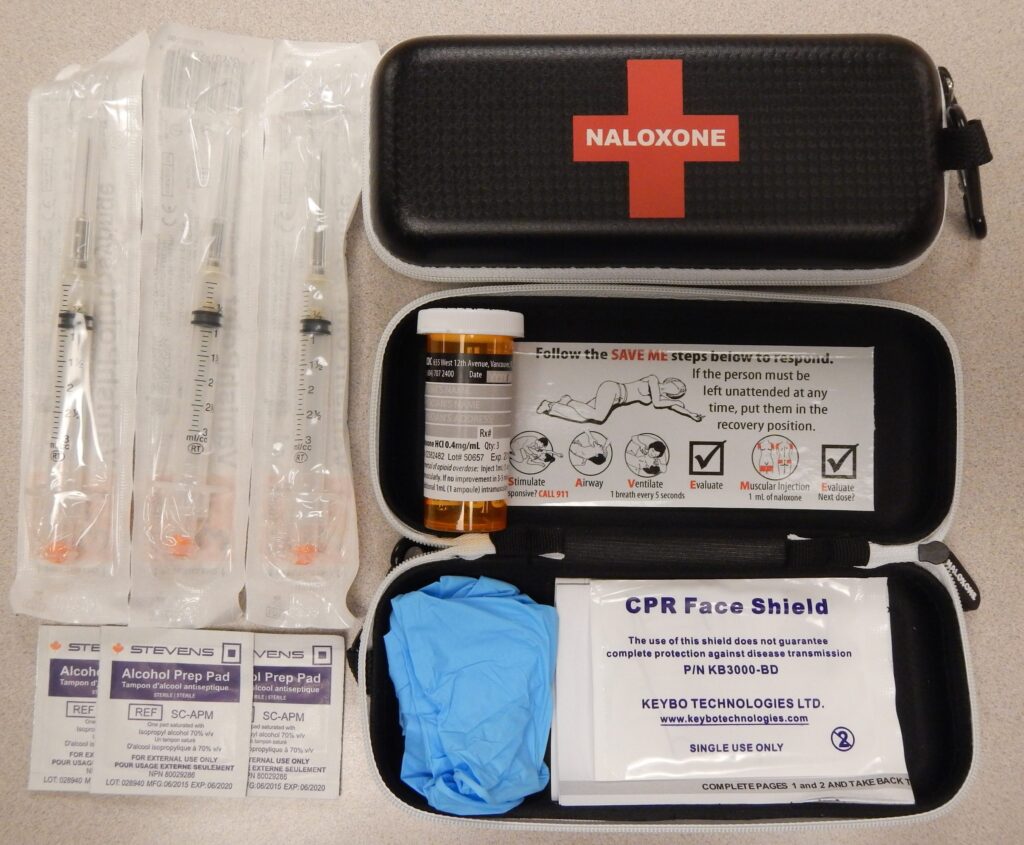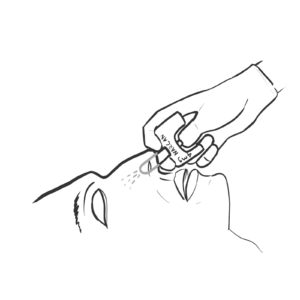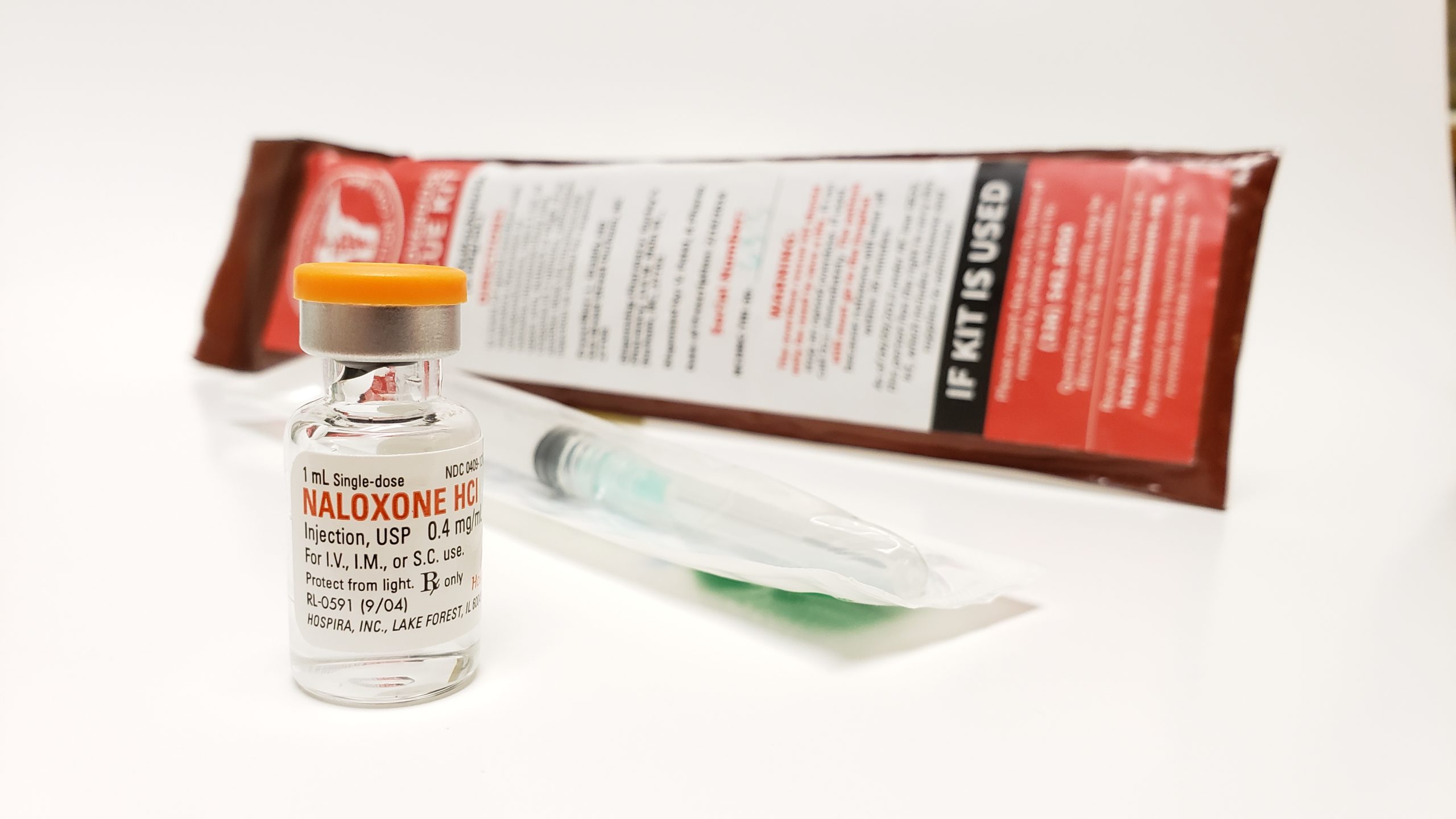Updated: June 9, 2023, at 3:29 p.m.
Designed to rapidly reverse the symptoms of an opioid overdose, naloxone is a temporary treatment without long-lasting effects. This medication, commonly known as the brand name Narcan, is typically administered when someone shows signs of an opioid overdose. Medical professionals use Naloxone during medical detox to help wean someone off drugs.
What is naloxone?
Naloxone, approved by the Food and Drug Administration, is an effective opioid antagonist that binds to receptors in the brain. Once it binds to receptors, it blocks the effects of opioid drugs such as heroin and prescription painkillers. Naloxone is not effective for treating overdoses of benzodiazepines or stimulants like cocaine and amphetamines. This medication is often used in emergency situations to reverse an opioid overdose and help restore normal breathing. In the case of opioid overdoses, most happen when an opioid causes the breathing rate to slow down to a potentially fatal level.
Most pharmacies carry naloxone, and in some states, it can be purchased without a prescription. Naloxone can also be obtained from community-based distribution partners, local health groups, and health departments, usually for free.

Naloxone injection overdose kit
How does naloxone in detox work?
Some people who’ve become dependent on opioids fall into addiction and require medical support to stop taking the drug. Naloxone works in drug detox treatment by temporarily blocking opioids from binding to receptors in the brain. The medication can be administered by spraying a mist into the nose. Sometimes the drug is given to patients via a shot into a muscle, under the skin, or through intravenous injection.
What are the different forms of naloxone?
Naloxone is available as an emergency nasal spray or injection. The three versions of naloxone that are available include:
- an injectable version in vials that’s sold as a generic drug,
- a refillable auto-injection device that you inject into the outer thigh,
- and a nasal spray that requires no assembly and is simply sprayed into one nostril of the individual while they lay on their back.
Is naloxone safe to use in opioid detox?
Naloxone is a safe medication to treat opioid overdose or addiction. It is even approved for pregnant women, under the supervision of a doctor. There is no evidence indicating that the extended use of naloxone causes harmful physical effects or dependence. People do not develop a tolerance to the effects of naloxone and there have been no reported deaths from naloxone overdose. Naloxone exhibits essentially no pharmacologic activity in the absence of opioids and the medication cannot be used to get high.
How fast does naloxone work?
Naloxone quickly crosses the blood-brain barrier and binds to opioid receptors in the brain, allowing it to reverse the symptoms of an opioid overdose almost immediately. Typically, normal breathing will resume within 30 seconds of naloxone administration.

4mg Narcan spray plunger being administered in the nostril of an overdose victim
How effective is naloxone in detoxing from opioids?
If naloxone is administered to someone who is suffering from an overdose in a timely manner, the medication can be very effective in helping the person become conscious and regain normal respiration. Studies have shown that naloxone can shorten the length of detoxification, but may increase withdrawal symptoms. However, these symptoms are rarely serious health risks.
What are the effects of naloxone?
The side effects of naloxone are mild. The most common side effects include headache and joint and muscle pain. However, naloxone can bring on severe withdrawal symptoms if administered to someone who is opioid-dependent. Symptoms of induced opioid withdrawal may include:
- Nausea and vomiting
- Diarrhea
- Sweating
- Trembling
- Nervousness
- Fast pulse
- Anxiety
- Agitation
- Abdominal pain
- Muscle aches
- Chills and goosebumps
- Severe cravings
How is naloxone used in medical detox?
Induced withdrawal techniques that involve giving patients opioid antagonists, like naloxone, with either minimal or heavy sedation can be used to make the detox process end quicker. The resulting withdrawal can then be managed by different medications that include benzodiazepines or propranolol. However, naloxone-induced withdrawal has been shown to increase the severity of initial opioid withdrawal and can often lead to adverse effects of withdrawal, such as vomiting, diarrhea, severe dehydration, renal failure, and/or delirium. Although the use of naloxone during detox was popular in the mid-1970s, there has been a lack of good studies that evaluated the associated risks. The procedure is not commonly used today.
Today, naloxone is most used during medical detox as an ingredient of Suboxone, an opioid replacement medication that contains buprenorphine combined with naloxone. Naloxone is included to discourage the abuse of buprenorphine. If someone who is dependent on opioids injects Suboxone into the bloodstream to get a high from buprenorphine, the naloxone will quickly block the effects of the opioid drug and induce withdrawal symptoms.
What is the naloxone challenge test?
A naloxone challenge is a test in which naloxone is administered to patients to see how much they’re dependent on opioids before they start naltrexone treatment or opioid replacement therapy. A positive result indicates addiction and consists of typical withdrawal symptoms that last for about 30-60 minutes. The ability to accurately assess opioid dependence is important in order to avoid inducing withdrawal when introducing opioid antagonist or partial agonist medications for relapse prevention.
Where can you go to learn more?
Naloxone is primarily a prescription drug. However, it can be purchased in most pharmacies. In several states, naloxone can be obtained without a prescription. Naloxone is a short-acting drug and is not designed to be a treatment for opioid addiction. Opioid addiction is a complex disease requiring comprehensive treatment that includes therapy, counseling, and psychological support. Please call Landmark Recovery at 888-448-0302 to learn more about our evidence-based opioid addiction treatment programs.

Choose Recovery Over Addiction
We're here 24/7 to help you get the care you need to live life on your terms, without drugs or alcohol. Talk to our recovery specialists today and learn about our integrated treatment programs.




